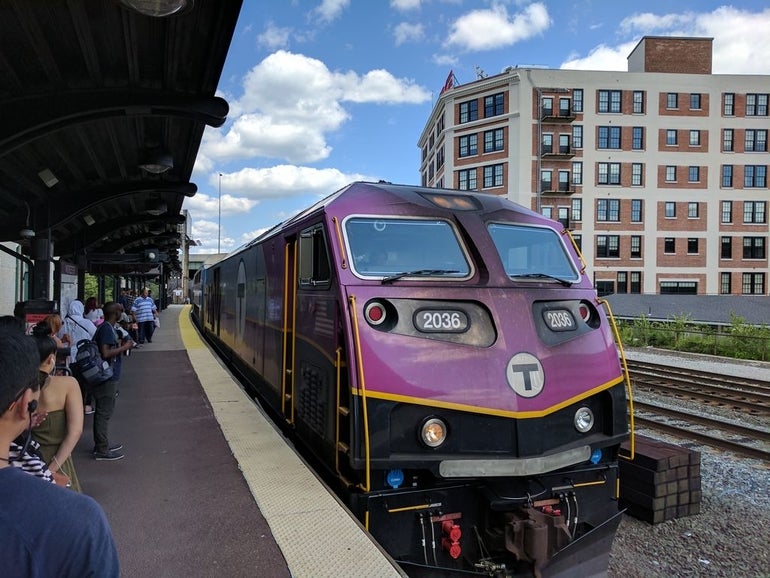Hours before Gov. Maura Healey called for a doubling of financial support for MBTA operations in her annual State of the Commonwealth address, a transit-focused nonprofit released a report calling for a large overhaul of the MBTA Commuter Rail’s Framingham/Worcester Line.
TransitMatters, a public transportation advocacy nonprofit based in Boston, released a 27-page report on Wednesday, arguing in favor of modifications to the Framingham/Worcester Line the nonprofit believes would lead to rapid and reliable transportation for Central Massachusetts communities served by the commuter rail branch.
The report calls for a number of improvements to Framingham/Worcester Line service, including the electrification of the line, the potential creation of new stations, and utilizing an existing freight line to restore train service to Marlborough.
The organization argues these modifications would lead to drastic improvements in service and set the table for a more successful rollout of the state’s East-West Rail project, a proposal which would see a large increase in service between Boston and Springfield.
“In the longer term, a modern Framingham/Worcester Line will help the Commonwealth meet its 2050 net zero emissions goal, provide equitable access throughout and to Boston, MetroWest, Greater Worcester, and Western Massachusetts, and play a role in facilitating the continued prosperity and competitiveness of the commonwealth,” the report reads.
The group argues the electrification of the line via overhead wires is a critical step toward restoring passenger levels to pre-pandemic levels and preparing the line for the future of regional rail travel, saying electrification would increase reliability and speeds while reducing emissions caused by the use of diesel-powered trains.
Implementation of electrification would cost somewhere between $200 million to $290 million, according to TransitMatters, which added this and other proposed improvements could potentially reduce travel times between Boston and Worcester to 43-50 minutes, compared to the current travel time of 1 hour 38 minutes.
The speed improvements caused by electrification and additional infrastructure improvements would allow for the creation of a number of new stations along the line, the nonprofit said. Proposed additions include the potential creation of a new stop in Millbury along Route 20 and the creation of a station near the intersection of Shrewsbury Street, Plantation Street, and Route 9 in Worcester, which could be utilized by employees and students at UMass Chan Medical School and UMass Memorial Health, among other employers and residents in the area.
In addition to the improvements to the existing Worcester/Framingham Line, TransitMatters is calling for the consideration of re-activating part of the Agricultural Branch, a line of tracks from Framinghan to Clinton currently utilized by freight trains. The group is proposing a service running from the existing Framingham station to the former site of the Marlborough Junction train station, which sits approximately 1.25 miles south of Marlborough’s downtown area.
Passenger service to Marlborough ceased in 1937, according to the Boston Region Metropolitan Planning Organization’s website, but TransitMatters believes the reactivation of this branch would allow local service to Framingham to continue onto Marlborough, noting approximately 16,000 employed residents within a two-mile radius of the line who could benefit from the restoration of service.
The report does not include an estimate of the costs for reactivating Agricultural Branch service.
TransitMatters calls for a number of other improvements in the report, including funding construction of high-level platforms at all stations, which will increase accessibility and help bring the line into compliance with Americans with Disabilities Act standards, and support for adding a third track to the line, which would allow for the implementation of faster express service.

